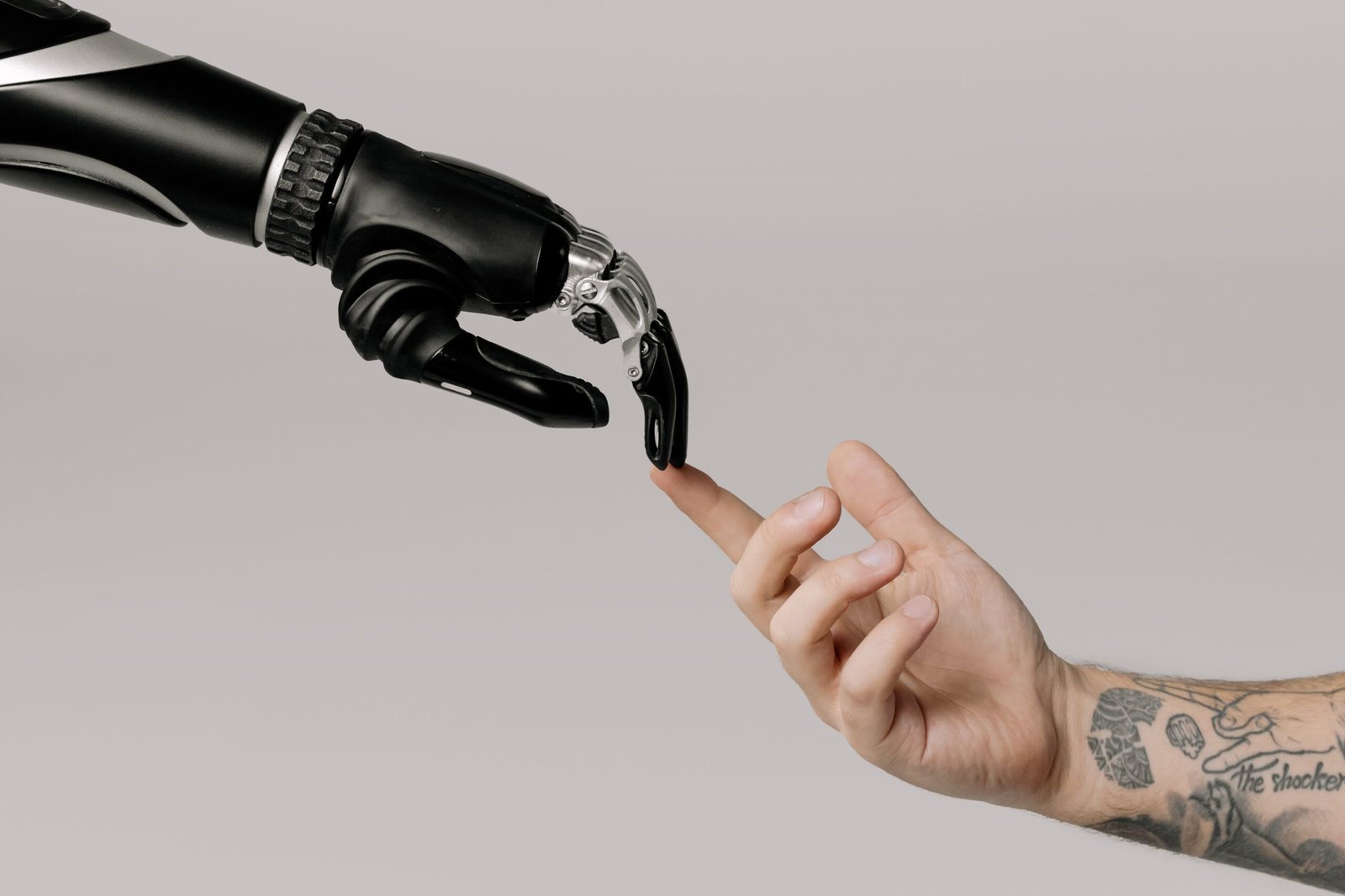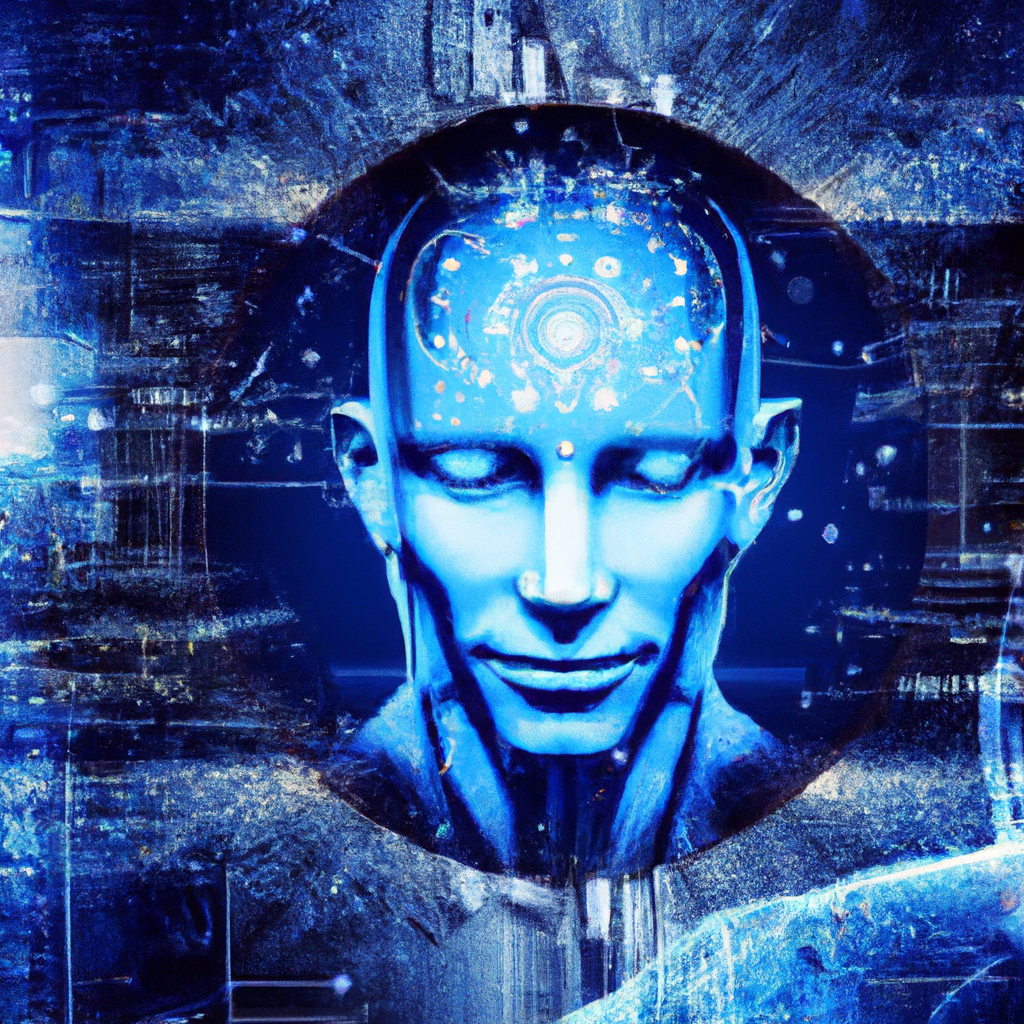In today’s digital age, AI has become an increasingly integral part of our lives, revolutionizing various industries. But have you ever wondered about its role in content creation? From writing articles, crafting social media posts, to generating personalized recommendations, AI has taken on a significant role in assisting humans in producing compelling and engaging content. In this article, we will explore the various ways in which AI contributes to content creation, shedding light on its immense potential and the impact it has in shaping our online experiences. So, let’s discover the fascinating and ever-evolving world of AI in content creation together!
Understanding AI
Artificial Intelligence (AI) is a branch of computer science that focuses on creating intelligent machines that can simulate and replicate human intelligence. AI systems have the ability to learn, reason, and problem-solve, enabling them to perform tasks that typically require human intelligence. In the context of content creation, AI plays a crucial role in helping businesses and individuals to generate, curate, and personalize various types of content.
Definition of AI
AI can be defined as the development of computer systems that can perform tasks that would typically require human intelligence. These tasks include natural language processing, speech recognition, decision-making, problem-solving, and more. AI systems use algorithms and large datasets to learn and improve their performance over time.
Types of AI
There are different types, or levels, of AI that span from basic to highly advanced capabilities. At the basic level, we have narrow AI, which is designed to perform specific tasks, such as voice assistants like Siri or Alexa. Narrow AI systems are focused on a single task and excel at it but lack the broader intelligence of human beings.
On the other hand, we have general AI, which refers to AI systems that can perform any intellectual task that a human can do. This level of AI is still largely theoretical and remains a goal for many researchers in the field. General AI would have the ability to understand, learn, and apply knowledge across different domains, providing a more human-like intelligence.
AI in Content Creation
Content creation is an important aspect of many industries, including marketing, journalism, and entertainment. AI is increasingly being used to assist in the process of generating and curating content, as well as personalizing it for individual users.
Automated Content Generation
Automated content generation refers to the use of AI systems to automatically create content based on predefined rules or patterns. This can range from simple tasks like generating news headlines or weather reports to more complex tasks like writing articles or even books. AI-powered content generation can save significant time and effort, especially for repetitive or data-driven content.
Content Curation and Personalization
Content curation involves the selection, organization, and presentation of existing content to meet the needs and interests of a specific audience. AI can assist in the process of content curation by analyzing user preferences, behavior, and feedback to deliver personalized content recommendations. This can enhance the user experience by providing relevant and tailored content, leading to increased engagement and satisfaction.

This image is property of images.pexels.com.
Benefits of AI in Content Creation
The integration of AI in content creation brings numerous benefits to businesses and individuals alike. Let’s explore some of the key advantages:
Increased Productivity
One of the primary benefits of AI in content creation is increased productivity. AI systems can generate content at a much faster pace than humans, eliminating the time-consuming process of manual content creation. This allows content creators to focus on more strategic and creative tasks rather than spending countless hours on repetitive tasks.
Improved Quality
AI-powered content creation can also improve the quality of content. AI systems can analyze massive amounts of data, identify patterns, and generate insights that can inform content creation. This data-driven approach can lead to more accurate and relevant content that resonates with the target audience. Additionally, AI can detect errors, suggest improvements, and ensure consistency in grammar, spelling, and style.
Enhanced Personalization
Personalization is becoming increasingly important in content creation, as users expect tailored experiences. AI enables content creators to deliver personalized content recommendations based on user preferences, behavior, and feedback. By understanding the individual needs and interests of users, AI can ensure that the right content is delivered to the right person at the right time, fostering a more engaging and meaningful user experience.
Challenges in AI-Powered Content Creation
While AI offers significant advantages in content creation, there are also challenges that need to be addressed. Let’s delve into the main challenges:
Ethical Concerns
One of the major challenges in AI-powered content creation is the ethical considerations surrounding its use. AI systems can generate content autonomously, which raises questions about authorship, intellectual property rights, and credibility. It is important to ensure that AI-generated content is clearly marked as such to maintain transparency and avoid misleading users.
Lack of Human Touch
Despite the advancements in AI, there is still a lack of human touch in AI-powered content creation. AI systems might struggle to replicate the creativity, emotions, and subjective aspects of human-created content. Content that lacks authenticity and a human touch may fail to resonate with users on a deeper level. Balancing the efficiency of AI with the human touch is essential to create content that engages and connects with the audience.

This image is property of images.pexels.com.
AI Tools and Techniques for Content Creation
AI relies on various tools and techniques to power content creation. Let’s explore a few key ones:
Natural Language Processing (NLP)
Natural Language Processing is a branch of AI that focuses on the interaction between computers and human language. NLP enables AI systems to understand, interpret, and generate human language, facilitating tasks such as automated text generation, sentiment analysis, chatbots, and more. NLP plays a critical role in powering AI-driven content creation, ensuring that the generated content is coherent and contextually relevant.
Machine Learning (ML)
Machine Learning is a subset of AI that enables systems to learn and improve from experience without being explicitly programmed. ML algorithms analyze data, identify patterns, and make predictions or decisions based on this learning. In content creation, ML can be used to analyze user data, generate personalized recommendations, optimize content performance, and automate content creation processes.
Generative Adversarial Networks (GANs)
Generative Adversarial Networks are a class of AI algorithms that consist of two components: a generator and a discriminator. The generator is trained to produce content, such as images or text, while the discriminator is trained to distinguish between real and generated content. GANs can be used for tasks like creating realistic visual content, generating product descriptions, or even enhancing audio and video quality.
Application of AI in Different Content Formats
AI has the potential to revolutionize content creation in various formats, including text-based, video, audio, and visual content.
AI in Text-based Content
In text-based content, AI can assist in tasks like automated article writing, social media post generation, and data-driven storytelling. AI can generate content that adheres to a specific tone of voice, incorporates keywords for search engine optimization, and meets the requirements of different mediums.
AI in Video Content
AI can play a vital role in video content creation by automating processes such as video editing, caption generation, and video summarization. AI-powered algorithms can analyze video content to identify objects, scenes, and sentiment, allowing for automatic tagging and categorization.
AI in Audio Content
AI can also be utilized for enhancing audio content creation. Speech recognition technology enables automated transcription, voice-controlled interfaces, and voiceovers. AI-powered systems can analyze and interpret audio data, facilitating tasks like automated podcast editing, music composition, and audio post-production.
AI in Visual Content
AI’s impact on visual content creation is substantial. AI can generate realistic images, create visual effects, and enhance image quality. Automated image recognition and tagging can optimize the organization and retrieval of visual assets. Virtual reality (VR) and augmented reality (AR) technologies, powered by AI, can enable immersive and interactive visual content experiences.

This image is property of images.pexels.com.
Future Trends in AI and Content Creation
As technology advances, there are several future trends in AI and content creation that hold promising potential:
Advanced Neural Networks
Advanced Neural Networks, such as deep learning models, are expected to play a significant role in content creation. These networks can process vast amounts of data, learn intricate patterns, and generate highly sophisticated content. Advanced Neural Networks can simulate various aspects of human creativity, enabling AI systems to produce content that is indistinguishable from human-created content.
Voice-Activated Content Generation
With the rise of voice assistants and smart speakers, voice-activated content generation is poised to become a prevalent trend. AI-powered systems can understand and respond to voice commands, facilitating tasks like generating audio content, creating voiceovers, and even composing music. Voice-activated content generation has the potential to revolutionize the way we interact with and consume various forms of content.
The Human-AI Collaboration
Despite the advancements in AI, the collaboration between humans and AI remains crucial in content creation processes. Humans bring creativity, empathy, and subjectivity to the table, while AI provides efficiency, scalability, and data-driven insights. Together, they can create content that combines the best of both worlds.
Human Editors and Reviewers
Human editors and reviewers play an essential role in ensuring the quality, authenticity, and relevance of AI-generated content. They can provide the necessary human touch, creativity, and critical thinking to enhance the content before it is published. Human oversight is crucial to maintain ethical standards and prevent biases that may be unintentionally introduced by AI systems.
Training and Guiding AI Systems
Training and guiding AI systems with human input are vital to improve their performance over time. Humans can provide feedback, corrections, and guidance to AI systems, allowing them to learn from their mistakes and refine their content creation capabilities. This iterative process enables AI systems to continuously improve and align with human standards and preferences.

Ethical Considerations in AI Content Generation
As AI becomes more integrated into content creation, it is essential to address ethical considerations.
Bias in Content Creation
AI systems are prone to biases present in the data they are trained on. These biases can result in unfair or discriminatory content. It is crucial to ensure that AI-generated content is free from biases, and that diverse perspectives and voices are represented.
Maintaining Transparency
Transparency is essential when using AI in content creation. Users should be informed when they are interacting with AI-generated content and be able to differentiate it from human-created content. Clear disclosure and labeling of AI-generated content can help maintain transparency and prevent potential deception.
Conclusion
AI plays a significant role in content creation by automating tasks, improving productivity, enhancing personalization, and driving quality. While AI brings numerous benefits, there are challenges to address, including ethical concerns and the need for a human touch. AI tools and techniques, such as NLP, ML, and GANs, power content creation in text-based, video, audio, and visual formats. Future trends in AI, including advanced neural networks and voice-activated content generation, hold great potential. The collaboration between humans and AI is crucial in content creation, with human editors and reviewers ensuring quality, and AI systems providing efficiency and insights. Ethical considerations, such as bias and transparency, must be addressed to maintain integrity in AI-powered content generation. As AI continues to advance, its impact on content creation will undoubtedly transform how we create, consume, and interact with content.
